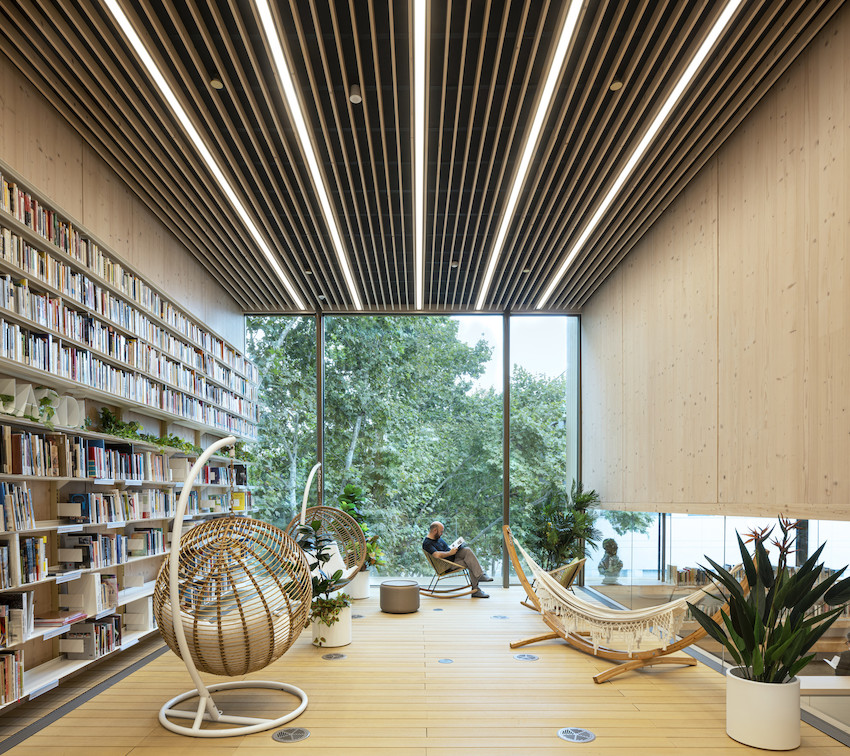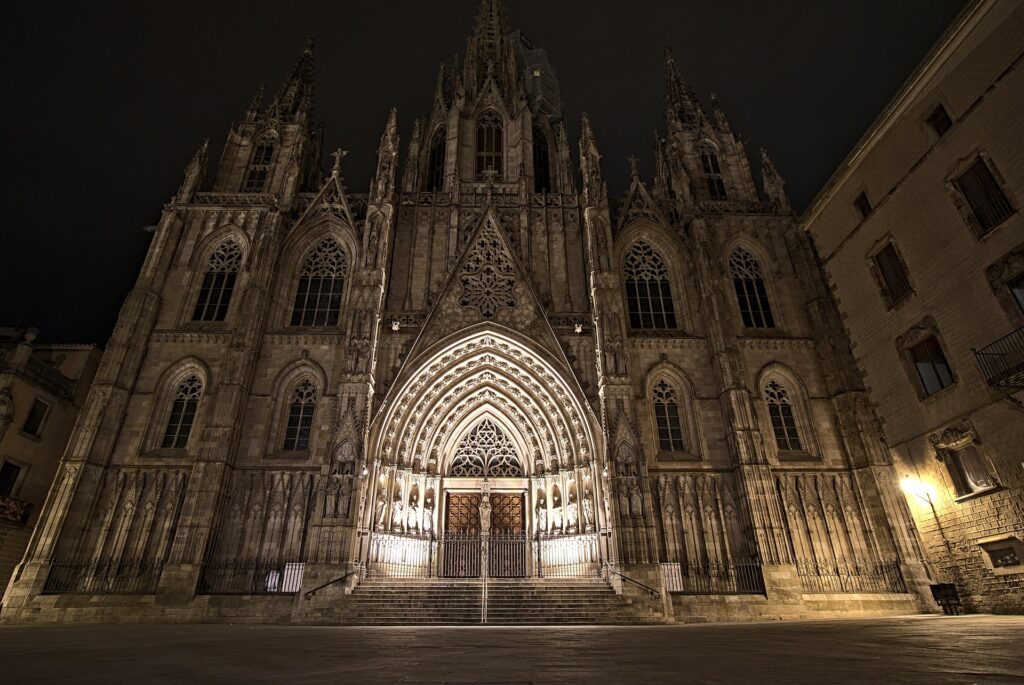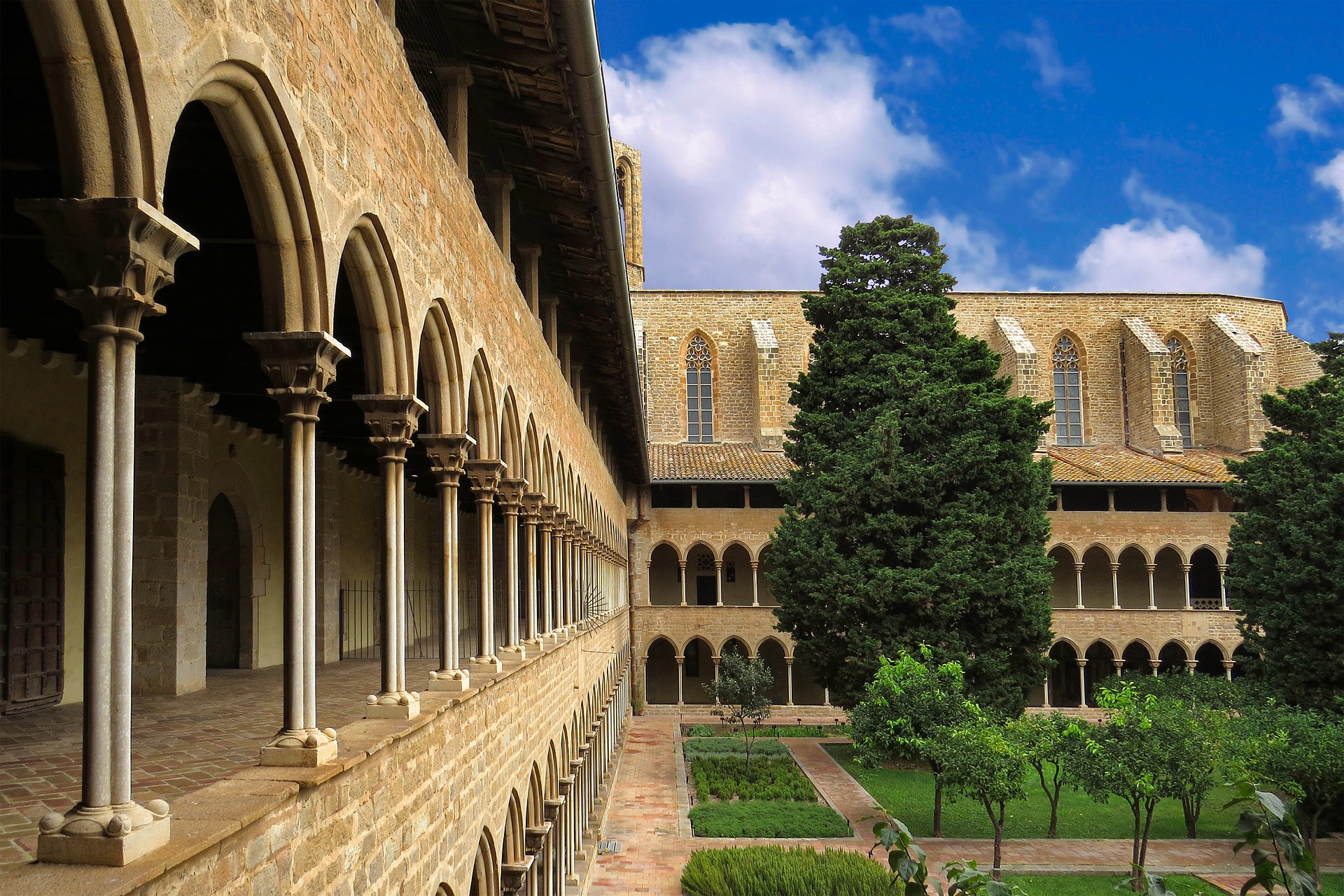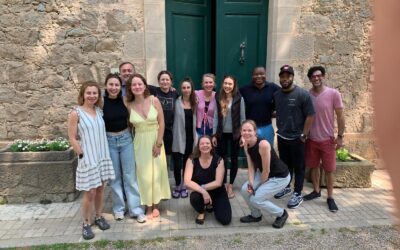Walking through the city often means walking through layers of stimulation. The never ending traffic, loud conversations, ads competing for your attention, notifications buzzing even in silent mode. The city vibrates. It moves nonstop. It seems to have no room to pause and it is often difficult to find quiet places in cities like Barcelona.
Yet within this constant noise, there are corners that offer a real alternative: silence. And not a symbolic or idealized silence, but something tangible and useful. Spaces designed or preserved for pausing, thinking, reading, breathing. Places where the volume lowers and the mind gains space.
The Value of Silent Spaces in Urban Life
In cities, we are constantly exposed to stimuli. This overload affects concentration, mood, and mental health. That’s why finding places where the noise stays outside isn’t just a pleasure, it’s a practical necessity.
Silence allows the mind to relax, thoughts to organize, and the body to slow down. It’s not a metaphor. Studies show how quiet environments help reduce stress, improve focus, and foster creativity. And the best part is, you don’t have to leave the city to find them.
Quiet Spaces in Barcelona
Every city, no matter how active, has places that prioritize silence. They are accessible, often free, and just waiting to be discovered. Here are some quiet places in Barcelona:
Public Libraries
Especially in study rooms or reading zones. They offer a controlled and respectful environment where concentration is the priority. In Barcelona, the Catalunya Library and the Sagrada Família Library are clear examples of these quiet areas.

© Jesús Granada I Suma Arquitectura
Churches and Cathedrals
In addition to their architectural and cultural value, they are places of reflection. Often open during the day and provide a quiet atmosphere. The Barcelona Cathedral or the Basilica of Santa Maria del Mar are ideal in this case.

Cathedral of Barcelona
Monasteries or Convents
Some allow visits or short stays. These are spaces with clear rules around silence ideal for those seeking deeper disconnection. The Monastery of Pedralbes, for example, is a good example to find in the city.
Meditation Rooms or Buddhist Temples
Designed for calm and introspection. Many offer open hours for those who simply want to sit in silence. Centers like the Sakya Tashi Ling Buddhist Temple, just outside the city, offer unique silent retreat experiences. Similarly, our corporate silent retreats at Silent Focus, just a few hours from Barcelona, are designed to offer a deep pause, foster mental clarity, and reconnect with the essential, away from the usual pace.
Small Museums or Exhibition Halls
Not all, but some museums request silence from their visitors, creating an environment suitable for distraction-free observation. The Museum Frederic Marès or the Egyptian Museum offer this type of atmosphere.
Enclosed Botanical Gardens
Especially those away from main roads. Here, the dominant sounds are natural. The Jardí Botànic of Barcelona offers this type of silent experience within Montjuïc.
University Study Rooms
Many universities open their libraries or study spaces to the public. These are carefully maintained and intended for focused work.
Hospices or Elderly Residences
In common areas, silence is promoted as a sign of respect. While not designed as open refuges, they can inspire the creation of similar spaces.
Hospital Chapels
Meant to accompany difficult moments, but can also serve as spaces for emotional pause.
Silent Train Cars
Some public transportation systems in cities around the world have implemented designated silent cars. In these spaces, talking on the phone, playing sounds, or holding loud conversations is not allowed. There are silent train cars on Renfe going from all major cities and recently you can find them on the FCG in Barcelona going on some of the S1 and S2 lines. They are an unexpected yet powerful option for finding calm even while commuting.
Art Galleries
Many small galleries maintain a quiet atmosphere to encourage a deeper connection with the artwork. The slow pace and natural contemplation of these spaces make them true refuges within the urban environment. Spaces such as the Antoni Tàpies Foundation or the Senda gallery are some examples of these art galleries.
A Simple Practice with Real Effects
Seeking silent spaces within the city doesn’t require a radical lifestyle change. It’s a concrete practice. It might start with a visit to the neighborhood library, ten uninterrupted minutes of reading, or choosing a small museum to walk through slowly.
Urban silence doesn’t need to be absolute. It just needs not to demand a constant response. It needs to allow you to simply be—without always producing. Without big declarations, these moments have a real impact on how we work, rest, and make decisions.
Silence Is Not a Luxury
You don’t need a mountain or a retreat to be in silence. Silence can be part of your routine if you know where to find it, and if you allow yourself to value it. What’s important is to integrate it as a resource at hand, not as an occasional escape.
Because living in a city doesn’t mean being condemned to noise all the time. There are options. And each space we find or choose to visit becomes a tool to live with a little more clarity.
Follow us on Instagram for more content: @silentfocus.co





